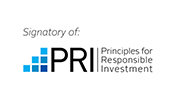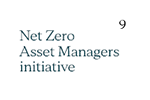1 CFA Institute, Global Sustainable Investment Alliance and Principles for Responsible Investment. "Definitions for Responsible Investment Approaches". 2023.
2 This information is provided for educational purposes and may not speak to the approach of each individual asset manager. Each of our asset managers have their own approach to managing Sun Life and third-party assets.
3 General account and certain third-party Clients, where relevant. More information on AUM methodology, including asset managers and criteria included in the calculation, is available upon request. Client asset values included represent a non-IFRS financial measure. Investments counted toward Sun Life's sustainable investment goal meet one or more of the criteria for investments based on ICMA Green Bond Principles, ICMA Social Bond Principles, ICMA Sustainability Bond Guidelines, GRESB Real Estate Benchmark, and PRI Impact Investing Market Map. Where issuers do not obtain a third-party opinion or provide an internal opinion on their issuance, our investment professionals apply judgment to assess whether the use of proceeds meets the standards set out in the ICMA principles. Assets included may not align with criteria in the Sun Life Sustainability Bond Framework. Does not include all holdings in companies that may be defined as sustainable under other taxonomies.
4 Financed emission values are calculated in alignment with the Partnership for Carbon Accounting Financials (PCAF), Part A Financed Emissions 2nd Edition (2022). Note this figure is not externally assured and may be adjusted in future publications due to changes in the organizational portfolio in addition to improvements in availability, controls, and quality of data. Values are impacted by rounding. The unit tCO2e refers to metric tonnes of carbon dioxide equivalent.
5 Material sectors include utilities (electric, multi, and gas); oil, gas, and consumable fuels; aviation; chemicals; construction materials, and mining. Alignment metric is the Paris Aligned Investment Initiative’s Net Zero Investment Framework.
6 Interim target and baseline emissions for commercial real estate associated with those of the Sun Life BGO Real Estate Equity Fund. Interim target developed using the SBTi methodology and has been submitted and accepted by the Net Zero Asset Managers initiative (NZAM). Note this figure is not externally assured and may be adjusted in future publications due to changes in the organizational portfolio in addition to improvements in availability, controls, and quality of data. Values are impacted by rounding.
7 An amount equivalent to the net proceeds from the offering will be used to finance or refinance, in whole or in part, new and/or existing green or social assets that meet the eligibility criteria set out under Sun Life's Sustainability Bond Framework.
8 For copies of Sun Life Assurance Company of Canada’s 2023 PRI Transparency and Assessment reports, contact sustainability@sunlife.com. For more information on the assessment, visit the PRI website.
9 MFS, SLC Fixed Income, BGO, InfraRed and SLGI Asset Management Inc. are signatories to NZAM.
10 Logo used with permission from Climate Engagement Canada (CEC). CEC is a finance-led initiative that drives dialogue between the financial community and corporate issuers to promote a just transition to a net-zero economy. For more information, please visit the CEC website. SLC Fixed Income is a Founding Participant and Contributor in CEC.
11 SLC Management, Sun Life Canada and SLGI Asset Management Inc. are members.
12 SLC Fixed Income, MFS and SLGI Asset Management Inc. are members.
13 Sun Life and MFS are members.
14 SLC Fixed Income joined the Partnership for Carbon Accounting Financials in 2022. Sun Life Financial joined in 2024.
Refer to Sustainability Data Scope.












